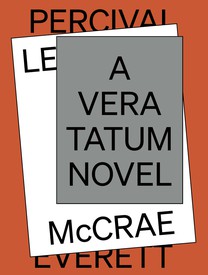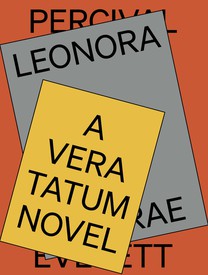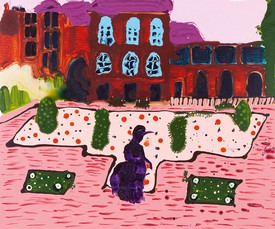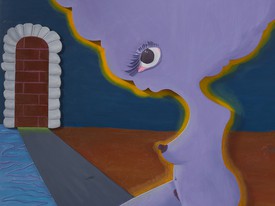
Venita Blackburn’s writing has appeared in thenewyorker.com, Harper’s, Ploughshares, McSweeney’s, the Paris Review, and other publications. The winner of the Prairie Schooner book prize in fiction for her collected stories, Black Jesus and Other Superheroes, in 2017, she is the founder of the literary nonprofit Live, Write (livewriteworkshop.com), which provides free creative-writing workshops for communities of color. Blackburn’s second collection of stories, How to Wrestle a Girl, was published in the fall of 2021. She is an assistant professor of creative writing at California State University, Fresno.
A little boy named Julius disappeared from a rural Alabama town in 1907. The boy was found, said the newspaper, the next day. Human history books contain some of the greatest fictions ever written. I can attest to the truth because me and my kind were there in every instance. If accurate reporting were the goal, the newspaper would’ve said, the boy was found alive. Better: the boy was found alive by a witch in the woods. Best: the boy was found alive by a witch in the woods and forever changed.
We poltergeists too have what we consider crimes—speaking this language, using calendars, love, etc. I had my own concerns other than editing human literature. Love, ahhhh, the drug of warriors and the conquered, of kings and housewives, of fiends and monsters alike. Just so we’re clear, I was in love with a ghoul who possessed a widow named Rebecca who was in love with a local prostitute named Sadie, so I possessed the prostitute in order to be nearer to my heart’s half, said ghoul. Relationship status: complicated. There’s a species of octopus that recognizes gender based on size and color. The males are usually large and mostly dull gray, the females are small and colorful. Among this species is a unique kind of male, very small, like a female, and it can change colors to look feminine. This male often sneaks into occupied dens already inhabited by a male and female and pretends to be another female looking for love. The big male is excited, believing he has acquired two female lovers, but while he sleeps the small male mates with the female and dashes away. The problem with polyamory is that somebody always gets their feelings hurt or decapitated in the end.
The unbearable heat of the previous days abated and a chill ran through the night when Julius was found. The townsfolk walked one by one to the church where the boy sat, needing proof that the fever of disruption to their safe concealed lives had ended. The missing boy allowed them to forget that Rebecca’s husband had been killed by strangers. A lost child gave them something sensible to worry over and then sigh in relief once that simple worry ended. All were satisfied for a while.
Sunrise simmered behind the trees and the final bell of the night sounded. It rang dull and weak like the metal had been beaten so profusely that it gave up all substance and was just the faint memory of what a bell should sound like. Rebecca and Sadie took their turns to look at the boy on the pew asleep on his mother’s lap. A pair of men’s boots rested on the floor next to them both, positioned in such a way that an invisible man could’ve been wearing them and sitting on the pew with a hand on Julius’s back or neck.
Not far from the boy, the mother, and the boots was the witch. The witch that found young Julius was not known as a witch yet. They called her grandmother first. They called her the old woman. They called her the aunt. They met her with gratitude when she said she and the boy ate mushrooms and wild meat together. She kept him warm. Gratitude like youth and good manners is fragile.
At first glance, the boy really was fine, whole, quiet, breathing steady and sleeping without a grimace or fever. His long black lashes curled upward and downward, feathers of beauty on his sharp brown face. Dirt streaked over his forehead, snot crusted his nose, and his nails were snagged, a little bloody and completely filthy, a lovely child.
Rebecca and Sadie passed over the boy and out of the church into the rising light of morning, feeling something between them I hadn’t felt for some time, confidence maybe, horny for sure, safe, definitely safe, and maybe worst of all, hopeful. The nightmare they imagined had turned out ok at least then, which meant maybe other things they desired might turn out ok too.
The people were tired and thirsty and some a little resentful that the tragedy of the hour had not fully manifested, so there was nowhere to direct their residual rage and annoyance. A few men said watch him to the mother in a tone slathered in judgment. Others looked hard at the old woman, who was nobody, nobody’s mother, nobody’s neighbor, nobody’s friend, cousin, butcher, or wife. She had frizzy red hair, somewhere in between friend and enemy.
Only later, in better light, did people notice the damage on the boy, his wrists rubbed raw from fabric tied tight. Only later did the town have more questions for the witch. How did you find him? Why were you alone? How long have you been there watching?
Before then, Rebecca and Sadie, my ghoul and I, had a whole morning together uninterrupted by the goings on of bad men. In the delirium of sleep deprivation and the high of hope brought on by the events of the day, Sadie stayed with Rebecca in her marriage bed, pressed tight and slippery in the lap of urgency relief. I tried to stay hidden but still near the surface of Sadie’s body and mind to see my ghoul, but there wasn’t enough resentment in the air from Rebecca or Sadie to hold my ghoul in place. They retreated deeper into Rebecca like a stone thrown in a pond. I could’ve wept.
That would’ve been a good time for me to go, for my ghoul to go. Leaving a possession is a little easier than entering one. Whereas the latter is like sucking flour through a straw, the former is like tearing off a bandage that has been stuck so long to infected flesh that a little bit of skin and scab has grown over the whole thing. You know what you’re getting into, a fuck load of pain.
Suddenly, like a prayer answered, the town delivered something more delicious than a sweet escape from the drowning of love. The town wanted to keep the witch, not like a pet or a house guest to be sure. She’d tried to retreat back into the woods that morning when Rebecca and Sadie were chin deep in one another. The deputy sheriff held the witch back with a large palm held out. I’m sure she just sat right back down.
I’m glad I gave these people a little time to convert their fear into gratitude and then into resentment and eventually into fear again. With fear comes the need to have control over what’s meant to exist in chaos. My ghoul was intrigued, and I could feel them rising to the surface of Rebecca again.
These are the questions I’m always asked at this point in the story:
Why keep the old woman when she was the savior?
I’m always shocked that the points I make about the nature of humanity continuously go misunderstood or, worse, blanketed in disbelief. People are crazy. I repeat, people are crazy. There is no innate sense of logic and reasoning governing this species. Under the right conditions, they will boil their mothers for a dollar or a cheeseburger.
Why didn’t you leave while you could?
This is quite the concern, one where I have no words to express the grave and horrific disappointment I have in myself and my kind have in me. Maybe I’m broken. Maybe the perfect agent of discord and mayhem that I once was is gone forever. Maybe love is infectious and I’m a ripe host, immortal and unrepentant. Maybe it’s my goddamn business and no one else’s.
Where did the witch come from?
There are always witches, cataloguing things they find in dirt and organizing their periods to the movement of celestial bodies. They have a good wholesome sense of humor though, really into dad jokes like the one about putting pepper on a soldier to make a seasoned veteran.
Is she a real witch with magic or just an escaped slave that never went back?
Both can be true at once.
What are our odds of survival?
Now that is a tough one. If anything, I consider myself a fair and honest observer of humanity, only occasionally caught up in some bullshit that skews my perspective. Ultimately, I’d say it’s a generation and a half before humanity implodes on itself, but I said that a couple millennia ago too, so, you know, 50/50.
Is love always this messy?
Yes.
As for Sadie and Rebecca, they were still reveling in the dream of possibilities. They spoke of winter, the leaves turning hard and golden then vanishing into the air and earth. Before the snow and the bells of Christmas, they considered all the places that could sustain their dream. There was the North, a place Sadie already knew and said was not all that different from Alabama, just with worse food and the illusion of more freedom than what was guaranteed. Then there was the West, a vast dry desert with mythical men on horses and sombreros. Certainly the West was big enough to hold all the debris of their imaginations, strange prickly plants and the perpetual hunt for water. It seemed like a place trying in various haphazard ways to kill anyone that crossed it. They laughed at their fantasies, at their ignorance, and the glee of having a choice at all.
The dreaming turned more serious when they considered how they might love one another, in secret or in public. Rebecca would not need to be a widow anymore and Sadie would not need to be a prostitute (unless they wanted). Their history was theirs to write and rewrite based on a mood. They could dress as men and move about more freely. They mourned the loss of their hair and dresses.
History is still a thing that lasts in the minds of those who encounter it for a while before it can be undone. Lies can be real for a while. The truth can become invisible for a while. For the two of them, there was only one truth that really mattered, that they lived.
Outside of the dream, they were still in the town, and another body had been found in the woods. This body was not found alive and was certainly forever changed. It was a man, pale, unlike the townsfolk, with hair wet and flat against his head. He was brought to the church barefoot and sodden, dragged from the bank of a pond. That is how the gratitude became resentment and fear. The stranger’s body belonged to someone somewhere and a clock began on when those people would come looking for him and how they would repay the favor of his discovery.
I killed him, the witch said.
Her eyes did not focus on just one spot, but wandered in competing directions, perhaps seeing a little more than the rest of them.
In the early afternoon, the town met in the church again to discuss how to proceed. Rebecca and Sadie crossed the dirt road and the wild grass into the building. There was chatter when they entered that died down as they walked deeper inside, finding a pew. Sadie wondered if the people could smell them, their secrets. Still in black, Rebecca reminded them all of what was possible with men like the dead one that lay wrapped up near the altar.
I’ll see you later, Sadie said.
Rebecca fought the hand that reached out for Sadie to stay and just nodded. Sadie and I walked to the sheriff’s office. There was no one inside, no one except the witch behind a wall turned into a cage.
Are you hungry? Sadie asked her. You don’t look like you have any food?
I don’t. The witch said nothing else and cast her eyes in various directions. Sadie left and returned with some bread and hominy. The witch accepted.
What did you do?
I killed him and took his clothes.
Was he going to hurt Julius?
Does that matter anymore?
They’re all afraid now. Afraid they’ll come and do to us all what they did to Rebecca’s . . . to the Pastor. They didn’t have a reason then but they have a reason now.
That makes it worse? A reason?
Sadie didn’t speak anymore and didn’t need to with a woman like that. Unfair judgment was not unfamiliar to them both.
Hang her!
A man in the church shouted as Sadie returned. The chatter from earlier had grown to screaming and demands for blood faster than even I expected. It was past lunchtime and the people were tense with hunger they mistook for rage. Hot sunlight came through the glass windows and heated the church to the point of discomfort.
Deliver her alive, said a different hot and hungry man. Send her with the dead son of a bitch and a note.
The idea of a note put a flicker of a smile on Rebecca’s face at a moment when humor seemed nearly impossible, but of course in such a state of the absurd, anything is possible. What might that note have said? Dear murderous racist neighbors, here is your kin, murdered for attempting to strangle one of ours. Please leave us the fuck alone now. xoxo
The arguments that followed were less diplomatic and far more strategic and marvelously gruesome, as with the suggestion that they carve up the dead man’s body and feed it to the wild animals. Let the beasts and the earth have him, they said. Nature keeps secrets, they said.
How pretty a thought for my ghoul to rise from. A fly buzzed around Rebecca’s head and then another and another. She did not flinch. The crowd debated and rested on the idea of depositing the dead man and his boots in the water and holding the witch hostage in case they needed to trade her for peace. She was of course just a stranger.
That night Sadie seduced the sheriff and Rebecca escaped with the witch into the night. They met a mile out of town on stolen horses without lights to guide them or a map with any destination that seemed more appealing than others. The only destination was escape from debates on whether to chop up corpses or how to prolong fear indefinitely. That’s pretty much the end.
Of course I’m often asked some follow-up inquiries:
Where did they go?
How did they eat?
Who did they meet?
What happened to the boy and how was he changed?
How long did they live?
Why did you stay?
Sooooo, everybody died eventually you know, in ten years or forty or whatever else. We were with them, my ghoul and I, Rebecca and Sadie, for the rest of their lives. When the women died, we were released easy as sliding from under a sheet. A single fly shared the room with me. We were gorgeous again, the shape of chaos and misery, together and naked in the stale breath of the dead wafting up and away. Death from old age spreads out like water spilled on a table. Only people are afraid of death. There was nothing left for us once that happened. The end isn’t the point at all.
Text © Venita Blackburn
Read “Memoirs of a Poltergeist: Part 1,” “Memoirs of a Poltergeist: Part 2,” and “Memoirs of a Poltergeist: Part 3”











